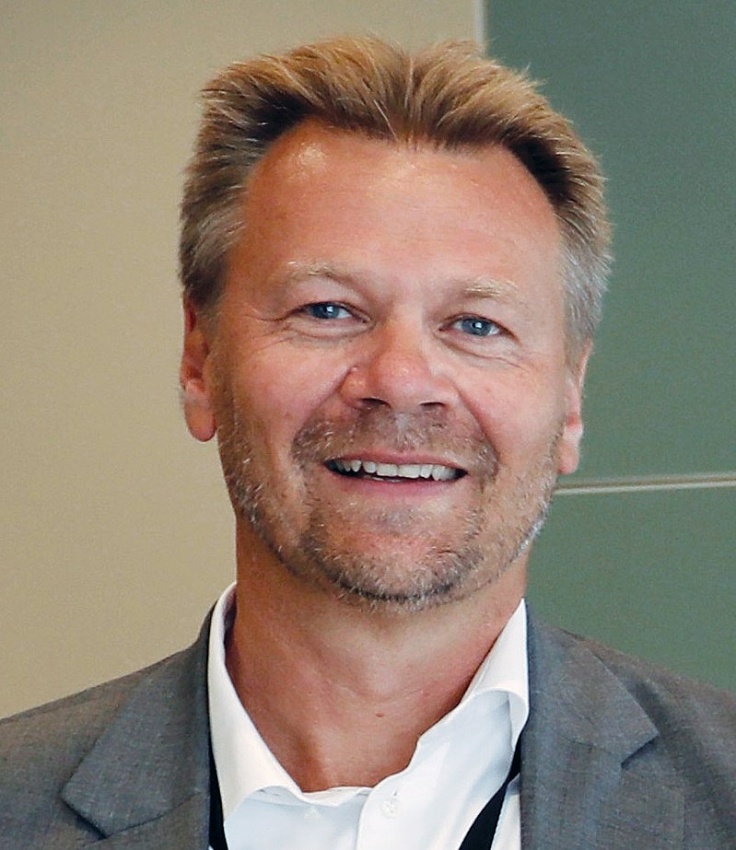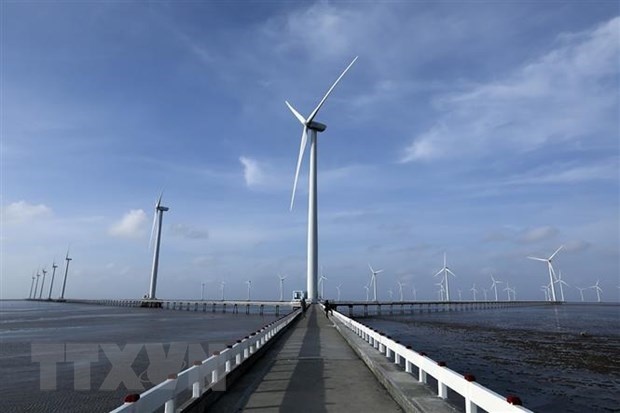Equinor reaffirms entry in Vietnam’s offshore wind
 |
| Jens Olaf Økland, Equinor’s senior vice president |
Why did Equinor choose now to open an office in Hanoi?
We believe it is very timely to open an office now. Vietnam is one of the world’s fastest-growing economies and power markets. With its long coastline and favourable wind conditions, the country has among the best wind resources in Asia and a strong desire to develop an offshore wind market.
The country is on a path to becoming net-zero and offshore wind can enable this transition. We believe Vietnam has a high potential to become an interesting growth market for offshore wind and have therefore opened a representative office in Hanoi.
Vietnam has set ambitious targets for offshore wind both for 2030 and 2045 which would result in Vietnam being one of the top offshore wind markets globally. The end of the decade is not that far away and a lot of things still need to come into place, both on the regulatory side and for the industry, but this is also natural in the emerging phase Vietnam is in.
Vietnam’s development of the offshore wind industry is part of the country’s green transition process. What are your future plans in Vietnam to tap into local potential and contribute to the effort?
Our ambition is to utilise our offshore experience and broad energy competence to support Vietnam’s energy transition, paving the way for renewables growth.
To date, Equinor has entered an MoU with PetroVietnam for future offshore wind opportunities. The partnership supports Equinor’s strategy as a global offshore wind major to build scale in core areas and establish growth options in attractive transition markets early.
We have also contributed to developing a Vietnam supply chain study report for offshore wind. The report provides an overview of the entire supply chain for Vietnam’s offshore wind industry and also highlights opportunities that offshore wind brings to Vietnamese suppliers.
We want to be part of the development of the offshore wind industry in Vietnam and successfully develop offshore wind projects, local competence and jobs. We believe that by being an early mover, we can help to shape the industry and leverage our experience from other countries to help establish offshore wind in Vietnam.
Offshore wind development requires a holistic technical, financial, and regulatory perspective and it is our experience that good collaboration between industry and authorities is needed combined with a mix of foreign companies and local companies to succeed.
Being present in Hanoi, we continue to develop our relations with the authorities centrally and regionally, and with the industry as a whole.
 |
| Turbines of the Bac Lieu wind power plant off the coast of Bac Lieu province (Photo: VNA) |
What are your expectations from the Vietnamese government in terms of the legal framework and more to enable investors to succeed and contribute to the power market?
We have seen some very positive developments with the latest Power Development Plan. Still, some work is needed to develop the regulatory framework for offshore wind, the main elements being leasing policy, remuneration, grid connection, approvals/consenting, and more. Having a framework in place will provide the predictability and line of sight the industry needs to develop offshore wind projects in a safe, cost-effective and sustainable manner.
The first offshore wind projects would require support as being first is more expensive with regards to the development cost. However, once these are in place, so will a continued maturation of the supply chain, and cost will come down very quickly. In Europe, offshore wind is now cheaper to develop than a new conventional thermal generation. We believe the same could take place here in Vietnam.
We have a very good and open dialogue with the government and want to utilise our experience to help shape the offshore wind industry. With regards to leasing, there still remains a need for more clarity on the model itself and how we can, for instance, obtain lease rights. Getting this kicked off early is important for the further timing of developing an offshore wind farm.
A lot of surveys, studies, and planning work is needed to do this in a sustainable manner and, in our experience, it can typically take around seven years from lease award to a project being fully commissioned, given that it is developer-led. The more clarity and streamlining early the better, as this can shorten the timeframe.
We fully support moving to an auction-based model for offshore wind, but it will also take some time to be established and propose that it is developed in parallel with the initial projects.
What the stars mean:
★ Poor ★ ★ Promising ★★★ Good ★★★★ Very good ★★★★★ Exceptional
Related Contents
Latest News
More News
- Trung Nam-Sideros River consortium wins bid for LNG venture (January 30, 2026 | 11:16)
- Vietnam moves towards market-based fuel management with E10 rollout (January 30, 2026 | 11:10)
- Envision Energy, REE Group partner on 128MW wind projects (January 30, 2026 | 10:58)
- Vingroup consults on carbon credits for electric vehicle charging network (January 28, 2026 | 11:04)
- Bac Ai Pumped Storage Hydropower Plant to enter peak construction phase (January 27, 2026 | 08:00)
- ASEAN could scale up sustainable aviation fuel by 2050 (January 24, 2026 | 10:19)
- 64,000 hectares of sea allocated for offshore wind surveys (January 22, 2026 | 20:23)
- EVN secures financing for Quang Trach II LNG power plant (January 17, 2026 | 15:55)
- PC1 teams up with DENZAI on regional wind projects (January 16, 2026 | 21:18)
- Innovation and ESG practices drive green transition in the digital era (January 16, 2026 | 16:51)

 Tag:
Tag:




















 Mobile Version
Mobile Version